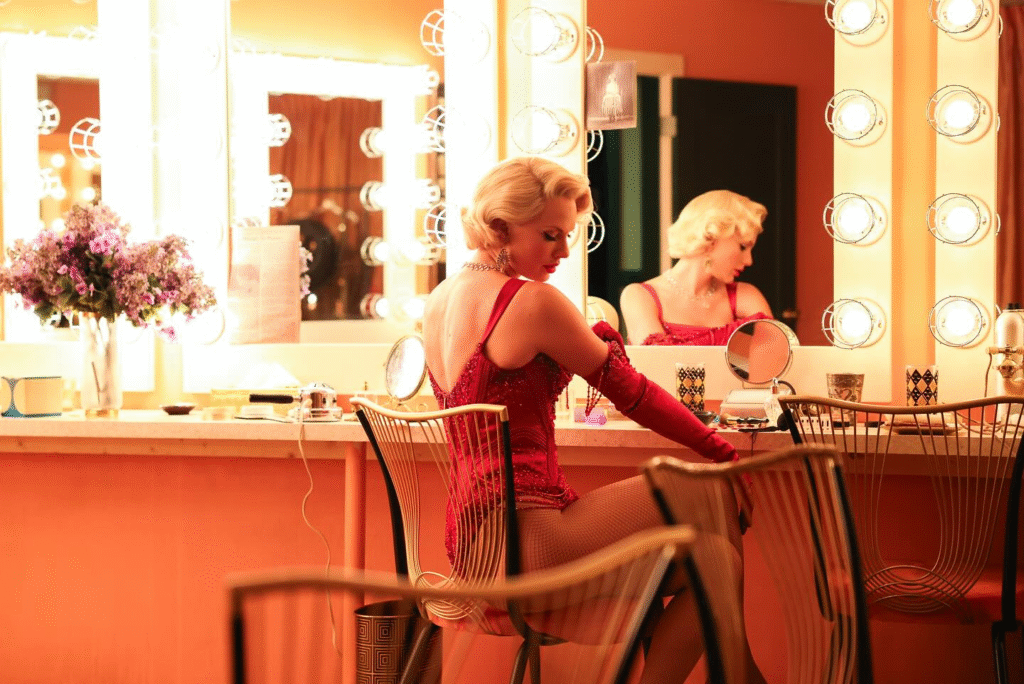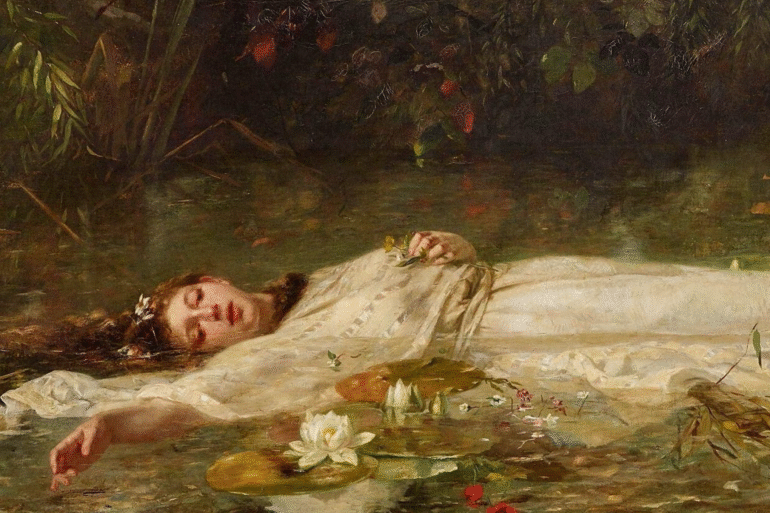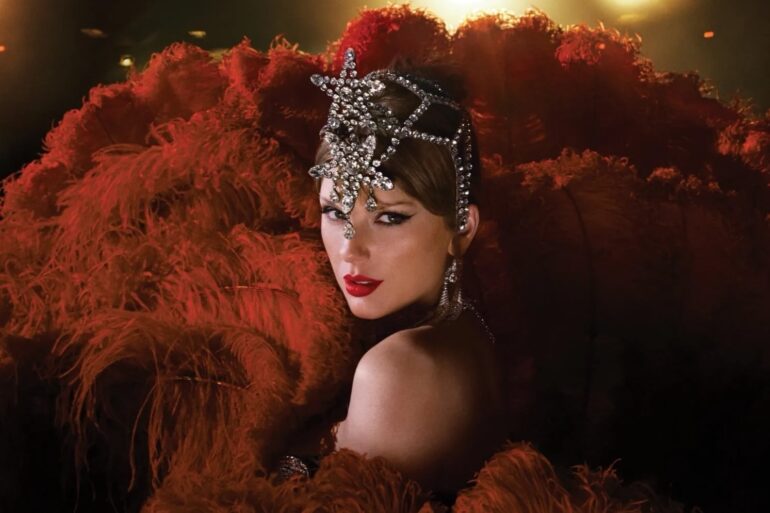Taylor has always written to match the love she’s living. This one— loud, flirty, free—feels like she finally switched to a new pen.
I’ve been a Swiftie since I was 13. I’m 33 now—I grew up with her words the way you grow up with a friend, the one who narrates your heartbreaks, reinventions, and triumphs before you can even name them.
That’s the thing about Taylor Swift: she’s not just a pop star; she was born a writer. In an old 2012 Vogue interview, she shared this random story of when she was fourteen, a shark washed up near their dock one summer. She got so scared of the water that she stayed indoors and ended up writing a novel.
Related story: The Taylor Swift effect: Crowds flock to Museum Wiesbaden in Germany to see Friedrich Heyser’s ‘Ophelia’
Related story: Taylor Swift’s ‘The Life of a Showgirl’: So this is what happy feels like

So when The Life of a Showgirl dropped, of course I was excited but I also expected a lot. I knew it would sound different, and I knew it would be a happy album. Taylor has always written differently, depending on the love she’s in, and this one—loud, flirty, free—feels like she finally switched to a new pen.
When she was with Joe Alwyn, she was building worlds, writing characters, telling stories about ghosts and girls and grief. Her love with Joe felt private, introspective.
But the question floating around online now is (well, kind of) cruel but fascinating: Did Travis Kelce make Taylor a bad lyricist?
First, I don’t think so. But I do think he made her write differently.
When Taylor writes in love
Let’s go back a bit—to the golden, glowing years of Joe Alwyn. For six years, Taylor was in her quiet era. Less pap walks and Instagram clues. Just music. And in that time, she wrote Reputation, Lover, Folklore, Evermore, Midnights, and later on The Tortured Poets Department. (That stretch alone would be a lifetime achievement for most artists, if you ask me)

Joe wasn’t just her muse, he was her writing partner. Under the pseudonym William Bowery, he co-wrote Exile, Betty, Champagne Problems, and Sweet Nothing. Those songs weren’t just personal, they were poetic. The lines from those albums could stop you in your tracks:
“I think I’ve seen this film before and I didn’t like the ending.” —Exile
“You booked the night train for a reason / So you could sit there in this hurt.” —Champagne Problems
“But if I just showed up at your party / Would you have me? Would you want me?” —Betty
This one’s my favorite—Folklore‘s fictional love triangle of James, Betty, and the girl from August. Taylor wrote it from James’s point of view, full of regret and teenage honesty. It’s storytelling at its best. I even named my dog Betty because of this song.
That era—the Joe era—was her writer’s peak.
It wasn’t commercial pop. To me, it was literature. She was building worlds, writing characters, telling stories about ghosts and girls and grief. Her love with Joe felt private, introspective. It made her look inward. It made her think and when Taylor thinks, she writes like no one else.

We can’t skip Midnights when talking about her evolution.
That album felt like reading someone’s 3 a.m. thoughts, the confessions you make in the dark. After the fiction of Folklore and Evermore, this one felt personal again.
“He wanted it comfortable, I wanted that pain.” —Midnight Rain
You can almost feel her starting to drift. Like loving someone, but also outgrowing them. The glitter aesthetic hides the ache, but it’s there.
And then came the special tracks:
“And I wouldn’t marry me either / a pathological people pleaser / who only wanted you to see her.” —You’re Losing Me
“Moving on was always easy for me to do / It hits different / it hits different ‘cause it’s you.” —Hits Different
Those songs were her admission. The breakup was already written before we knew it happened. Midnights was her bridge between holding on and letting go. Between writing with Joe and learning to write about the loss of him.
Related story: Taylor Swift’s ‘The Tortured Poets Department’ has us sitting, sinking and screaming in tempestuous ruin
The Tortured Poets Department aka the closure
By the time TTPD dropped, we knew the Joe era was definitely over.
And to me, the album sounds not really revenge or resentment, but more like resignation. “So long, London” was the goodbye letter we were waiting for, clipped with a heavy grief.
“You swore that you loved me, but where were the clues?”
It’s also a rare time she lets the listener see her in transition, a woman who is heartbroken but not broken. In “The Manuscript,” she closes the album with a line that sums it up:
“Looking backwards / might be the only way to move forward.”
And maybe that’s also why we’ll probably never get a Reputation (Taylor’s Version). After a six-year relationship, would you really want to reopen that era?
And a year later, she gave us The Life of a Showgirl.
From poets to football players

Travis Kelce: loud, proud, romantic, funny, a literal tight end. The kind of man who announces his love on a podcast, not in a metaphor. The kind of man who makes friendship bracelets and tells the world how much he wanted to meet her.
For the first time in a long time, Taylor doesn’t have to hide. That joy is exactly what The Life of a Showgirl sounds like: bright, confident, messy, unfiltered.
And for the first time in a long time, Taylor doesn’t have to hide. She can be public, silly, open. She can cheer from the stands, walk hand in hand, kiss him on the field, and post him on Instagram. That joy is exactly what The Life of a Showgirl sounds like: bright, confident, messy, unfiltered.
But it also feels… simpler. Based on how we recognize her writing. TS12 is still filled with metaphors and references but compared to her previous ones, this album is more straightforward.
Unpacking The Life of a Showgirl
When The Life of a Showgirl dropped, everyone had something to say about it.
Rolling Stone gave it a glowing five-star review, calling it “a new artistic and personal peak.” The New York Times made it a critic’s pick. Newsweek called it her “most intimate and revealing” album yet. And then, of course, there were less-impressed voices. The Cut called it “a mixed bag,” and The New York Post slammed it for “awkward jokes and petty beefs.”
Related story: Brands move swiftly, jumping on Taylor Swift and Travis Kelce’s engagement
Related story: Endgame: Inside Taylor Swift and Travis Kelce’s love story
Here at The POST , fellow writer and Swiftie Tiffany Jillian Go wrote that while it’s not a perfect, skipless record, it’s a version of Taylor that finally sounds free. And I agree. Showgirl isn’t Folklore or Evermore. It’s not sad or tortured. It’s confident, flirty, and fun. It’s the sound of someone who’s been through the mess and came out choosing joy.
Songs like The Fate of Ophelia and Opalite shimmer with that ease. She’s still literary, still clever, referencing Shakespeare and old Hollywood. Wi$h Li$t softens everything with that simple line: “I just want you.” It’s straightforward, honest, and happy.
Then there’s Wood, the song that broke TikTok for weeks. Fans have been both amused and a little heartbroken. Some are laughing about Wood’’s not-so-subtle lyrics, while others say they miss the “lyricist Taylor.”
One post even compared “His love was the key that opened my thighs” to 2019 track Daylight’s “I once believed love would be burning red, but it’s golden, like daylight.”
Maybe that’s what makes The Life of a Showgirl so interesting. It’s not her sharpest or most poetic record, but it’s her most alive. Taylor sounds unfiltered, a woman who’s done trying to prove her genius and just wants to dance under the lights.

Happiness sounds different
It’s easy to mistake simplicity for laziness. But I think this is something else. When you’re heartbroken, you overanalyze. You turn feelings into puzzles. You overthink every line. (Hello, Tortured Poets Department.) But when you’re happy, you don’t need metaphors. You just live.
That’s what The Life of a Showgirl is. This is what “not overthinking” sounds like—what happiness sounds like. When you’re loved loudly, you don’t have to whisper it into poetry. You can shout it, dance with it, post it.
She’s been a tortured poet. Now, she’s the showgirl.
And honestly, she’s earned the right to just have fun.

But okay, let’s be real, Joe inspired her to write even better
Still, as a fan and a Joe-era girl, I’ll admit it: I miss that era.
Lover, Folklore, Evermore were beautiful because she cared about the storytelling.
Before Joe, there were other eras and other guys who inspired some of her sharpest writing. All Too Well (allegedly about Jake Gyllenhaal) remains her most famous heartbreak song, a masterpiece that Rolling Stone named one of the greatest songs of the 21st century. Every detail still cuts: the scarf, the kitchen light, the quiet humiliation. That song was about memory itself that all of us remember all too well.

Then there was Back to December, her rare apology to Taylor Lautner, where she actually said sorry in a song. And the Harry Styles era: short, chaotic, iconic, that gave us Style and Out of the Woods, songs that sound like fast cars and doomed timing.

By the time Joe came into the picture, she’d grown up. Reputation may have looked like a revenge comeback album, but it was one of her most romantic albums. He loved her when the world didn’t. And that love bled into Lover, Folklore, and Evermore. He loved her at her darkest, and she wrote from that kind of safety.
But with Travis, it’s lighter. The songs feel more spontaneous, happy, and free. They don’t hit as deep, but maybe they’re not supposed to. She’s not making us decode meanings. She’s just… happy.
So, did Travis make her a bad lyricist?
No. He didn’t make her bad, he made her comfortable.
Reputation and The Life of a Showgirl are both love stories—just told from different chapters.
I may miss the way she used to write. The long bridges. The metaphors that needed decoding. The clues hidden in capital letters. The way her songs felt like novels. I think all of us long-time Swifties do. We miss the literary Taylor, but we love the one that’s living her best life, too.

What comes next?
If history tells us anything, it’s that Taylor always swings back. She experiments, she evolves, and then she writes something that either devastates us or strengthens us.
Now, she’s glowing. She’s in love. She’s performing her happiness instead of her heartbreak. And if that means her lyrics are simpler, lighter, less self-aware, then so be it. I’ll blast it. And maybe we can live with that. Because being a Swiftie means you don’t just love her eras, you grow with them.
And I’ll always be here, waiting for the next one.
Related story: What to expect from Taylor Swift’s ‘End of an Era’ docuseries and ‘The Final Show’ concert film
Related story: 13 clues that, all along, an invisible string ties Taylor Swift and Travis Kelce








